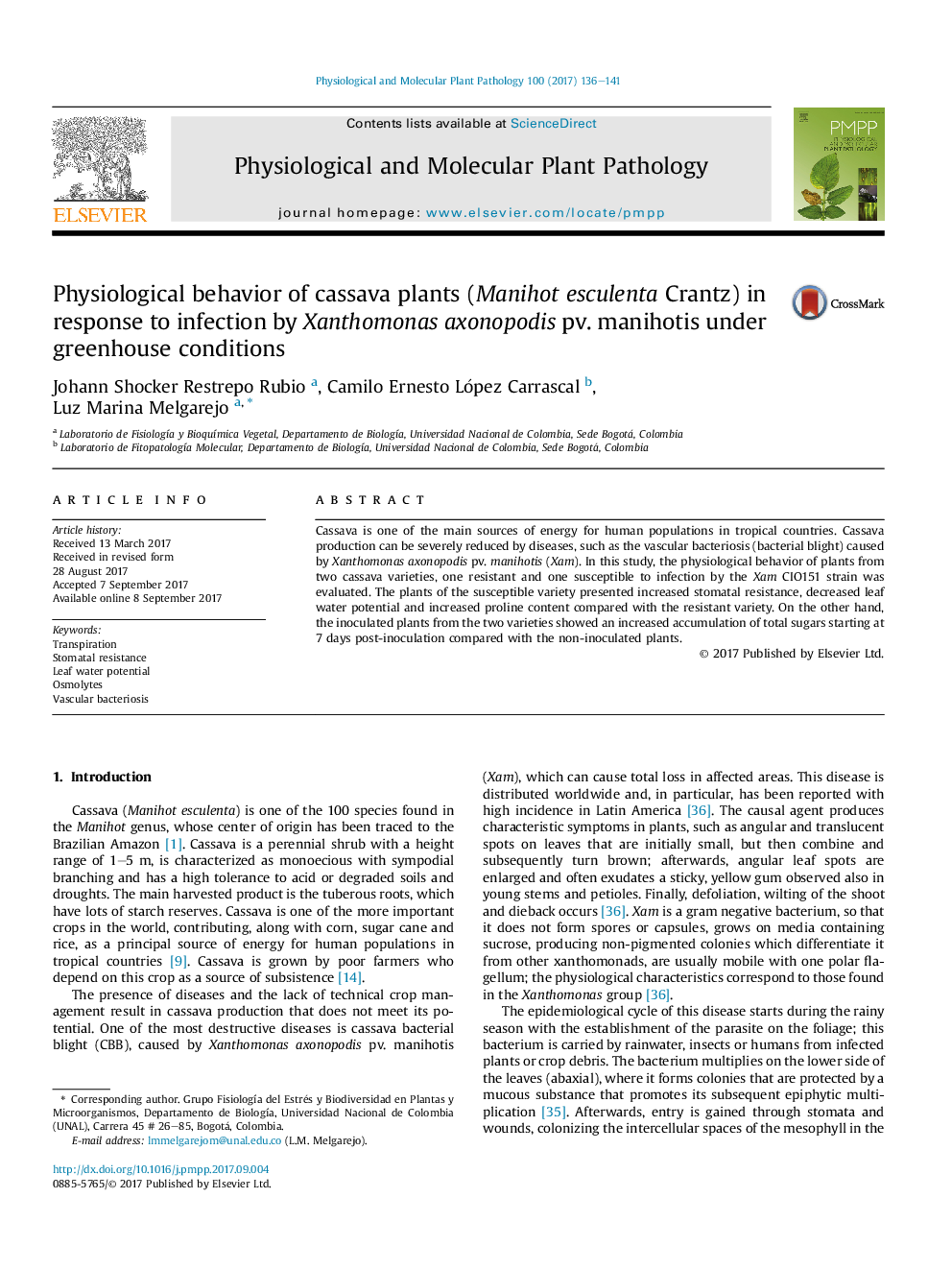| Article ID | Journal | Published Year | Pages | File Type |
|---|---|---|---|---|
| 5592578 | Physiological and Molecular Plant Pathology | 2017 | 6 Pages |
Abstract
Cassava is one of the main sources of energy for human populations in tropical countries. Cassava production can be severely reduced by diseases, such as the vascular bacteriosis (bacterial blight) caused by Xanthomonas axonopodis pv. manihotis (Xam). In this study, the physiological behavior of plants from two cassava varieties, one resistant and one susceptible to infection by the Xam CIO151 strain was evaluated. The plants of the susceptible variety presented increased stomatal resistance, decreased leaf water potential and increased proline content compared with the resistant variety. On the other hand, the inoculated plants from the two varieties showed an increased accumulation of total sugars starting at 7 days post-inoculation compared with the non-inoculated plants.
Related Topics
Life Sciences
Agricultural and Biological Sciences
Plant Science
Authors
Johann Shocker Restrepo Rubio, Camilo Ernesto López Carrascal, Luz Marina Melgarejo,
